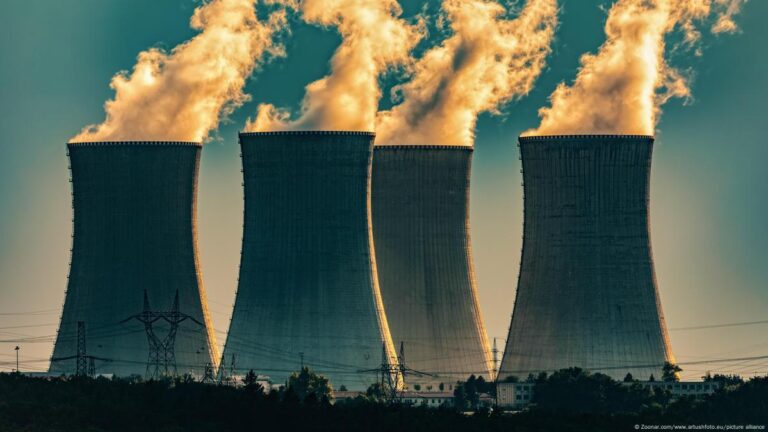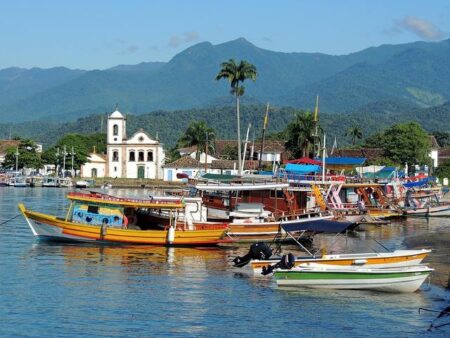Niger’s pursuit of nuclear energy has taken a decisive turn as Russia edges out France in securing a pivotal deal to develop the West African nation’s first nuclear power plant. This strategic win marks a significant shift in the region’s energy landscape and geopolitical dynamics, underscoring Moscow’s growing influence in Africa’s resource-rich territories. The move not only challenges France’s longstanding dominance in Francophone West Africa but also highlights Niger’s ambition to diversify its energy sources amid increasing demand and developmental needs.
Niger’s Nuclear Strategy Shifts as Russia Gains Upper Hand Over France
Niger’s energy landscape is undergoing a significant transformation as Moscow secures a strategic foothold in the country’s nuclear ambitions. After years of French dominance in West Africa’s energy projects, Russia has leveraged diplomatic finesse and economic incentives to claim a pivotal role in Niger’s proposed nuclear power plant. The shift underscores Russia’s growing influence in Africa, aligning with its broader geopolitical objectives to counter Western presence and secure critical resources. Experts highlight that Russia’s approach combines direct state-backed financing with technology transfers, which have appealed to Niger’s leadership eager to diversify energy sources and reduce dependency on traditional partners.
Key facets of Russia’s advancing strategy include:
- Long-term energy contracts offering favorable terms compared to previous agreements with France.
- Capacity-building initiatives designed to empower Nigerien engineers and technicians.
- Robust security cooperation ensuring the protection of nuclear assets in a volatile region.
Analysts caution that this realignment not only reshapes Niger’s power matrix but also challenges France’s historical influence in the Sahel. The evolving energy partnership demonstrates the increasing complexity of global competition in resource-rich yet infrastructure-poor nations.
| Aspect | Russia | France |
|---|---|---|
| Financial Backing | State loans & grants | Private-sector driven |
| Technology Transfer | Comprehensive training | Limited local expertise |
| Security Collaboration | Integrated military support | Standard protocol assistance |
| Contract Duration | 30+ years | 15 years |
Analyzing Russia’s Diplomatic Moves and Their Impact on Niger’s Energy Future
Russia’s strategic engagement in Niger marks a significant recalibration of influence over the West African nation’s energy landscape. By proposing the development of a nuclear power plant, Moscow has effectively inserted itself into a domain historically dominated by France, Niger’s former colonial ruler and long-time economic partner. This move not only challenges France’s longstanding hegemony but also demonstrates Russia’s growing ambitions to expand its geopolitical footprint through high-stakes energy diplomacy. The deal underscores Moscow’s intent to leverage Africa’s natural resources and energy needs as a platform for broader regional influence.
Key impacts of Russia’s involvement include:
- Energy diversification: Introducing nuclear power offers Niger an alternative to its reliance on hydrocarbon imports and hydropower, which are vulnerable to climate fluctuations.
- Geopolitical shift: Aligning with Russia disrupts traditional Western dominance and opens Niger to new international partnerships.
- Economic leverage: Russia’s investment in nuclear technology paves the way for extensive infrastructure development and potential export opportunities in the region.
| Aspect | France’s Approach | Russia’s Approach |
|---|---|---|
| Energy Technology | Focus on uranium mining and gas power | Nuclear plant construction and technology transfer |
| Political Influence | Long-term economic control and aid | Rapid infrastructural investment and military cooperation |
| Economic Model | Resource extraction with limited local value-add | Emphasis on sustainable energy and skill development |
Recommendations for France to Reclaim Influence in Niger’s Emerging Nuclear Sector
To regain its foothold in Niger’s burgeoning nuclear sector, France must adopt a multipronged approach that sharply differentiates its offer from that of Russia. Strategic partnerships with local institutions and investment in community-driven energy projects could foster goodwill and underline France’s commitment to sustainable and inclusive growth. Moreover, accelerating the deployment of advanced safety protocols and transparent environmental assessments would reassure Nigerien authorities and the public alike, offering a compelling counter-narrative to competing Russian proposals.
Enhancing diplomatic engagement through targeted economic incentives and knowledge exchange programs could also catalyze cooperation. France should focus on:
- Technology transfer initiatives tailored to build Niger’s domestic expertise
- Joint research projects addressing local energy challenges
- Flexible financing models that mitigate upfront costs for Niger
- Regional collaborations to position Niger as a nuclear hub in West Africa
| Key Area | French Strategy | Expected Impact |
|---|---|---|
| Technology Transfer | Capacity building with training centers | Enhanced local expertise |
| Economic Incentives | Low-interest loans and subsidies | Improved project affordability |
| Diplomatic Engagement | High-level bilateral talks | Strengthened political ties |
| Environmental Assurance | Rigorous safety standards | Increased public trust |
Insights and Conclusions
As Niger moves forward with its nuclear energy plans, the shifting alliances and strategic maneuvers between Russia and France underscore the complex geopolitical dynamics at play in the region. Moscow’s successful bid to secure influence over Niger’s proposed power plant marks a significant development in West Africa’s energy landscape, signaling broader implications for regional power balances and international partnerships. As Niger navigates its path toward energy independence, the contest between global powers is set to shape not only its domestic future but also the strategic calculus of external actors vying for influence in Africa.




